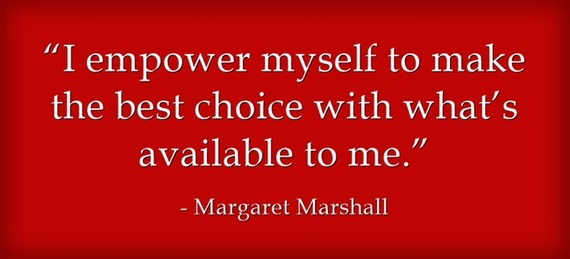How often have you eaten something, didn't want it, and ate it anyway? If this happens more than you realize, could you be eating because of an impulse to your eyes, or any one of your five senses? Could this be a reason you overeat?
When hunger strikes, often you eat with your eyes, because the first thing that is visible to you becomes just what you want. It may not be the best item to satisfy hunger, but it is what you grab.
There is a fine line between eating and overeating. Eating is enjoying food, overeating is when you no longer taste the food yet you continue eating. This could happen for many reasons. Overeating often happens when your focus is on other thoughts, emotions, or actions as you continue eating. Eating is then mindless. Eating enjoyment happens when you break from conversation and other distractions to eat. Eating is mindful, and the enjoyment of the sight, aroma, texture, sizzle, and taste of food is the focus.
As discussed in Body, Mind, & Mouth...Life's Eating Connection, it is the connection between the mind and the mouth that dictates your health and your weight. Your senses, sight-smell-taste-hearing-touch, will dictate how much you eat, and to a great extent, your choices and enjoyment of your food. When your senses are controlled by impulses, spur-of-the-moment unhealthy food choices are made. In order to ensure healthier food choices become aware of how often impulses influence your senses and decision making.
Sight:
You eat with your eyes first. Maybe you are hungry or maybe you're not, but either way often you see something and immediately, consciously or unconsciously, think, "I'll eat that." It happens while choosing food from a menu in a restaurant. The server walks by with someone's meal, and you think, "That looks good." While shopping, impulse items such as candy are put at eye level so you think, "I'll get one of those." As soon as you enter a theatre, the snacks are immediately in front of you so you purchase them to mindlessly eat during the show.
Smell:
You may be a guest in someone's home for dinner and as you walk through their front door you smell the food as it's simmering. Or you're cooking in your own home, and for a few hours you enjoy the aromas of the meal. Grocery stores now put their bakeries by the entrance so you are immediately met with the sweet smell of their baked items. Driving down the main street in your town, your local fast food hamburger chain store has the aroma of their grill wafting through the neighborhood. All these smells create impulses to entice you to experience unplanned or excess eating.
Taste:
You start eating and the taste of the food is so enjoyable you just keep eating thinking, "This tastes great!" After a while you no longer taste the food but since it tasted so wonderful at the start you continue eating. You eat to the point of being uncomfortable and never realize that long-ago you stopped enjoying the taste.
Hearing:
You hear someone talk about a meal or a food item that they enjoyed and after hearing their comments you want some. The TV is on in the background and you hear an advertisement for a food item and all you can think about is purchasing that item.
Touch:
You touch your food with your mouth, teeth, and tongue, and if it doesn't feel right, you'll find a way of spitting it out or experience a gagging response. But when the texture of food is pleasing you continue eating. While texture has little to do with taste, again, the pleasing sensation of texture can cause you to overeat.
Enjoy food with all your senses consciously, but impulses to your senses can lead to uncontrolled or excess eating.
Common sense:
To counteract these impulses, be aware of the connection between your mind and your mouth and be conscious of when and how much you eat. Pay close attention to which senses lead to uncontrolled eating, and which ones create eating satisfaction.
Food is meant to be enjoyed. When it's no longer enjoyable -- stop eating.
